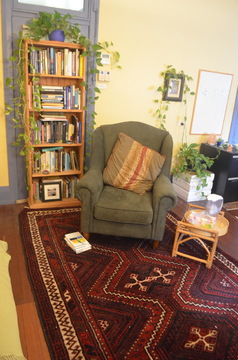COUNSELLING
I practice counselling as a brief form of problem-solving, goal oriented and solution focused work which may last anywhere from 3 sessions to 16 sessions, or when the client’s goals have been achieved.
Counselling can beneficial for a variety of concerns, such as:
- Anxiety.
- Mild depression and low self-esteem.
- Stress management.
- Relationship challenges.
- Enhancing communication.
- Conflict resolution.
- Clarifying decision making.
- Exploring life-style options.
Often many concerns that clients bring to counselling cannot be resolved to the client’s satisfaction within a brief counselling context. In such situations the work is engaged within a longer context working with a psychotherapeutic frame.

HERE is a link to a brief article I wrote about the difference between brief counseling and psychotherapy.
PSYCHOTHERAPY
The way I practice psychotherapy involves:
- a longer contract than counselling, (over 20 sessions), or…
- an open-ended contract, (where the client terminates when they feel the need).
Psychotherapy, compared to counselling, involves a deeper focus on self-exploration, self-understanding and working through of long-standing issues rather than temporary life problems.
Where some issues may be resolved within a few months often clients commit to work lasting several years.
- In exploring and resolving enduring and problematic patterns and themes in the client’s life. Often these patterns are related to early developmental relationships or various strong/traumatic experiences in one’s past which have not been processed or resolved.
- Anxiety, depression and low self-esteem.
- Difficulties forming and maintaining healthy relationships.
- Legacies of trauma and abuse.
- Unresolved grief and loss.
- Difficulties with addictive behaviours.
- Unexplained somatic/psycho-physiological complaints.
- Issues of sexuality and gender.
Working with the above issues in psychotherapy often involves creating a trusting and safe relationship which may take some time to cultivate between client and therapist.
A second area psychotherapy can be beneficial in is:
- As a space to explore the possibilities for a deeper connection to life, to exploring continuous growth and to living more creatively.
- Exploration of life-purpose and meaning in life.
- Deepening exploration of self-understanding.
- Accessing creativity.
- Supporting optimal health and life-style changes.
- Exploring the mind-body relationship and how to live a more embodied life with greater vitality, intention and presence.
- The integration of day to day and spiritual/transpersonal concerns.
Book an Appointment
For further information about my services, please feel free to contact me.

